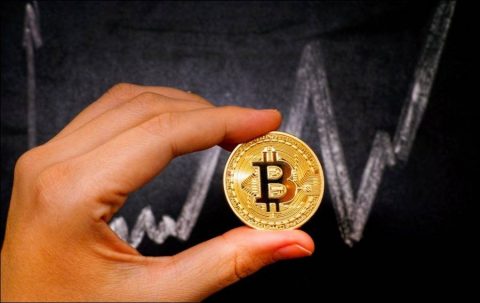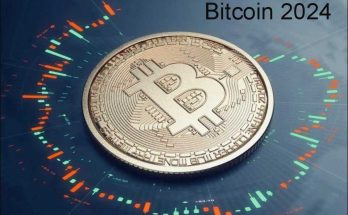After graduating from Bosphorus University Business Administration and Harvard Business School, Turan Sert, who has held various positions in finance and technology in international companies and worked as a management consultant, also has a book called Blockchain with Questions about blockchain. In this interview, we talked with Turan Sert about the possibilities of this “new” economy, which is in great demand in Turkey, its relationship with the states, and the new opportunities it offers.
When we say crypto money or Bitcoin, are we talking about a currency?
Yes.
A coin not produced by a state? So how does its value come to be? In other words, it is not produced by a state, but we are also talking about a currency, how is the value of this money revealed? What determines its value?
Yes, there are seven or eight main criteria that determine the value of money. These main criteria can be listed as whether it can be used as a shopping tool, whether it can be divided into parts, whether it can be carried easily or not, whether it has the ability to hold a value. In addition, money has certain features such as the fact that any one of them is the same as the other, and that it is limited in number. But “What gives value for money?” When we say that, it is one of the most critical issues that it can hold value and be used in shopping. First of all, it should be said: Money is a belief system.
Do you believe in Bitcoin?
It doesn’t matter if I believe it, people do. Let me put it this way: it is a currency that is completely valid in the digital world, in a freely bought and sold market, where people can buy and sell with their free will, without being forced, without being pressured, anywhere in the world.
Now here, what our generations – when we say our generations, older generations, older generations – have difficulty in perceiving is that we are a lucky and unlucky generation. We are the lucky generation because we were born before the digital age and lived before the digital age. I call it the Analog Age or the Physical Age. Physically, you can actually touch objects. You hold that glass, the keyboard, it exists physically, it is tangible. We have seen these and gradually transitioned to digital, digitalization.
When we moved to digitalization, digitalization has given us incredible benefits, ease, comfort, access to things quickly, that is, the absence of physical barriers. These are always the most critical parts of digitization. But since digitalization is a process, we couldn’t solve anything at first. That’s it: In any way – I said the most important feature of money, holding value – we have not been able to keep value in the digital world.
When I say we failed, I mean this: Do you remember once there was Napster, there was MP3s. Here music files could be copied, it changed the whole music world. There is one thing in the digital world, that is copying. So you can send a JPEG photo to forty friends, post it on the internet, right click and copy it. Since it is not a physical thing, it can be copied very quickly. Something copied too fast can’t hold value, can’t have value, because it’s too much. This is a critical issue.
This is why we have always had to use a tool in economic relations to prevent duplication in the digital world. How did we hide money in the digital world? We had money in the bank, the bank became an intermediary for us, we went to the bank’s website, from there -for example- I sent you money. In other words, the concept we call value has still become the transfer of what is in the physical world to this world, its imitation here. However, the digital world is a place that can provide both much larger and much greater potentials since there are no physical barriers. But we always stayed in the physical world. That’s how we stayed. We always say in money, “Who is behind him, is there someone?”
“Is there any value behind money?” Isn’t the question important?
For example, the most valuable thing in the world has been gold for centuries, the rarity of gold made it valuable. The rarity of it is that it can withstand time, does not deteriorate, and the second critical issue is that it is limited. Because throughout history, gold can be mined between 1.5 and 2.3 percent a year, no matter how much gold there is, for example, even now. It is very difficult to remove.
Do you know what this provides? This provides stability. It allows people to see the future, and that’s why gold is always valuable. In the nineteenth, twentieth century, you know, the paper money we call banknotes was actually this: banks said to people, “Don’t keep gold in your house, bring it to the bank, we will give you shares that show you own it” and you know that when the banking system first started it, first of all, private banks There was money to be issued, then the states said after a while, “This should be under my economic domination, you guys step aside” and the states started this business by holding gold. But gradually they broke up with it.
The reason is also very simple: When you have gold, you can print money corresponding to that much gold. However, the expenses of the states are high and their incomes are low. That’s why states started leaving this gold-based system after the First World War and they said, “We don’t hold all of it, we keep a certain part of it”. Then, most recently, after the Vietnam War, Nixon said, “I’m cutting ties with gold.” After that, money, the money we use, money printed without any value behind it. You know, you ask, “Is there any value behind this Bitcoin?” that.
I ask what determines the value of money.
Now I will come to what determines its value, but its value is determined by countries, and the value of countries is determined by their weapon power. What determines the value of the American dollar is actually what gives rise to the so-called “petro-dollar”. In fact, America has a value in the world, especially in the Middle East, thanks to its military forces, ensuring order there and returning world trade to the American dollar.
How does America’s military power determine the value of the dollar there? Does its military power ensure the use of the dollar as the sole currency in international economic relations?
Yes, military power provides it. Established in the 1970s, this US-dominated world trade is now said to be an unsustainable system. The reason is this; In the past, 25 percent of the world’s gross national product was in the United States, while 85 percent of world trade was in American dollars. Now, with the rise of China, America’s share of gross domestic product has dropped to 15 percent. But trade still continues with 85 percent US dollars. So this is a very unsustainable cycle.
Now rewinding again, where does the value of Bitcoin come from? Like I said, it comes from people attaching a value to it. Why do people attribute value to Bitcoin? It is the most critical issue. People appraise Bitcoin -the money in the current monetary system is called price-money, or in other words, the fiat money, the money printed by the states- because they see problems in those currencies and because they think that they have overcome these problems and problems in Bitcoin. What are those problems?
Just “Do you believe in Bitcoin?” “People believe,” you replied. Did people who do not trust the money in the monetary system set up a trust-based economic system here?
Right, you are so right. True, there is trust, but the important thing is to be able to answer the question of how this trust is achieved.
There is a mechanical difference between trusting dollars or money and trusting cryptocurrencies. The way they form is different from each other. There is a kind of hegemonic relationship behind the trust in the dollar. Is it a case that the state establishes this trust by means of force, coercion or consent, but when we reach the level of cryptocurrencies, the hegemonic relationship here is dissolved or overcome? Is this how we understand a matter of agreement you say in the book, does it provide some kind of agreement?
Right. It comes from here. I’m telling you because you got into the deal issue. Any system has to work in some way, and it’s usually done by central authorities. The decision-making mechanism, for example, in the US dollar, the US government, the central authority, the FED, the structure formed by the central banks in the US. While this is ensured by a decision mechanism at the top in organizations, since Bitcoin is a decentralized structure – that’s where the consensus comes in – it has to act with a consensus. Otherwise, it goes to centralization. In order to avoid centralization, independent elements must work together. Thus, they chose consensus among themselves as a management model.
Is this a requirement?
That’s how the system is set up, yes. In other words, the system does not work if there is no agreement, the system works through agreement. I was just saying: Why are people valuing Bitcoin? Bitcoin is roughly half of the crypto world, the rest is other cryptocurrencies. I’m talking about Bitcoin. Bitcoin is the first to start this business and it is useful to explain the issue of value over Bitcoin.
Why do people attribute value to Bitcoin, there is a value under it that I just mentioned. What’s that? The emission of Bitcoin, that is, its printing, is clear from the first day. How much to press, how to press. Currently, 80 percent of it has been printed, 18 million of which is 21 million in total. After that, you know how much supply will be in terms of supply-demand balance.
It’s kind of like the gold I just mentioned, but you know the future is much clearer and numerically here – that’s how the biggest issue, trust, is resolved. However, this is not the case for the price. We know that this is not the case, from the real estate mortgage crisis in the USA in 2008, from the terrible printing of money in the mortgage process and in the same way last year. What is money printing? If something is too much, its value decreases. Printing money has the potential to lower the value of money. People are afraid of it.
In other words, there is a risk that “if I keep my money in dollars, I will lose my assets due to the depreciation of the currency due to the inflation that will occur due to this printing of money in the future”. Bitcoin has this feature, the amount is certain. In fact, it’s one of the reasons people in the developed world use it. Other than that, it doesn’t appeal to a certain audience, it has different meanings for each audience, it can express value. It’s interesting too. For example, one of them is not being censored because it is not limited by any physical limit, it is not subject to any censorship.
What do you mean by censorship?
If you want to send money to Iran right now, you cannot send it from Turkey. Certain countries are limited, as the swift system does not work. But there is no such obstacle in Bitcoin. So anyone from anywhere can send money to each other using it. This is another value proposition of Bitcoin. These are basically—there’s a lot more actually—but these are basically things. Huh, “Is it safe, what constitutes trust?” you asked.
As I said, there is something about the future, and it is useful to say this and to explain the reconciliation mechanism. Now we are talking about a completely digital world. In the digital world, the systems of banks are attacked, and the customer information of some companies is attacked. This is something that happens a lot in the digital world. The Bitcoin we are talking about is also in the digital world. So is it safe, will something happen tomorrow, will it disappear?
The security of the Bitcoin system is ensured from the very beginning with the concept of “mining”. For the healthy and uninterrupted operation of the system in the digital world, a wall is built around the system by the miners, and this is a wall that is constantly being built. Its purpose is to resist attacks from the outside world. As you know right now, the phrase “Bitcoin consumes a lot of energy” actually comes from here: You can also look at it as a problem of Bitcoin.
On the one hand, you can also look at it as raising the scale to protect yourself from external attacks. Is Bitcoin safe now? Yes, nothing is 100 percent, by the way, we should not forget that there is always a bit of risk in everything we talk about, there always is, there will always be, but the Bitcoin system has not stopped in any way and has not undergone any attack since 2009. As I said, one of the most important reasons for this is that the mining system is settled.
Is the so-called cold wallet application also part of this safety gear? If I understood correctly what I read in the Thodex process, the cold wallet allows you to carry your assets in the digital world in your pocket, you can keep your existence in a simple flash memory.
Unfortunately, the cold wallet issue has come to the fore a lot after this last incident. I find it more appropriate to call it a “personal wallet”, a personal electronic wallet. Now, the concept of cold-hot wallet is actually an expression used for cryptocurrency trading platforms. It is also used for individuals, but if we talk about the Thodex event, platforms that mediate trading works, usually under the name of crypto trading platforms, emerge for this purpose.
Do you see the phenomenon of blockchain or crypto money as an irreversible process, have we entered a new phase?
Yes, we have entered a new phase. It didn’t start yesterday. It started in 2009 but blockchain systems, decentralized systems, these are called public blockchains, public, decentralized blockchains have been around for a long time and this is slowly increasing. First of all, it was increasing in terms of usage and investment, but now a value began to emerge in terms of functionality. From here, we are slowly moving to other currencies after Bitcoin. I say this: Bitcoin is the first use case of this business. Let me say that it is the first product of this decentralized technology, but it is a very specific product. There is only one thing he wants to do, and that is to be money. To be uncensored money that hides value in the digital world.
And not be subject to any sanction or hindrance.
Yes. It’s not on the money. In other words, the control can be on the holders of the money, or on institutions, such as crypto money exchanges, which I think should be, there should be a regulation in crypto money exchanges. Because they are not decentralized structures, crypto exchanges are centralized structures. They all have offices, they operate in plazas. Therefore, they have a certain physical existence, they are in countries. They must be subject to that country’s laws and that country’s control. There are already government regulations out there as they bridge the gap between the small investor and the crypto world.
I would like to talk about what makes crypto money attractive in its current state, the side of the state. States print according to their legal framework. It is determined from its physical shape to its appearance. At the same time, every currency has a value in the global market. You call it “teaching” because we came to such a world, we learned it.
For example, you do not question gold, why, because it has existed for centuries, thousands of years. So, do you have gold or is it the gold center?
Not. I can understand the irony when I look at the evolutionary scheme you described in the chapter on money in the book. Bitcoin or this form of money called crypto money can also turn into a means of payment, like credit cards, but…
Polat, there is actually something we forgot there. While we were talking about wallets, we quickly moved on to regulations, the cold wallet issue was left unfinished. You are sending money and you have bought on a cryptocurrency exchange. This is actually a situation caused by incomplete and insufficient information. Normally, those who understand this world know that, in the virtual world, you can take that money and put it in your wallet, just like you give dollars to a foreign exchange kiosk and give TL or TL to your wallet and take dollars and put it in your wallet. This can be your own wallet, flash drives or applications that you can install on your phone, software that you install on your computer.
Even Chrome.
Yes, Chrome has extensions, like MetaMask for example, you can get that too. In the end, what matters is this: The wallet doesn’t actually hold money. Do you know where is your money, the money you bought? On the blockchain. Where is the blockchain? In thousands of machines in the world and it keeps records, the blockchain is just like a bank, but while the only bank center knows and shows you on the screen that you have money in the bank, thousands, tens of thousands of machines in the blockchain – that means tens of thousands of banks – they all keep that record and all process it and all at the same time with the consensus mechanism it’s working. If I send you any money, they say, “Turan sent money to Polat” and they drop the money in my wallet and write it on your side.
You sent money to the cryptocurrency exchange, so you said “I want to buy X coins”. Now, the crypto exchange that should be in theory will go, he will buy that X coin from someone for you, but even when you buy it on your behalf, that X exchange will be written on the blockchain. Because he is taking it to the X exchange account. That money is still his.
You can say to the stock market when you trade from the stock market screens: “I want to withdraw my money.” Where? There is an address given to you by the application on your phone, which is registered on the blockchain and you say “send to this address”. Hah, then the cryptocurrency exchange -whether it received that money from someone or not- at the point it sent you, that money on the blockchain is now yours, it’s over.
After that, you have nothing to do with the stock market. That financial freedom, one’s financial independence comes into play there. Wallets provide that. By the way, something like $150 million that was stolen from Thodex and is currently being calculated, and this is money that people took and didn’t withdraw from Thodex. If these people were conscious and knowledgeable, if they had taken it into their wallets, such a situation would not have happened.
You can’t expect people to be that knowledgeable, and the government has to legally ensure that that money is there, along with auditing. At the very least, the exchanges had to prove it. Thodex normally had $150 million, if the money that people didn’t withdraw was kept in Thodex, it would work like this: People normally trade, most of the traders keep their money inside, connected to the internet, called a hot wallet and seeing action, relatively risky , you keep a small amount in a hot wallet that is likely to be attacked from the outside, and you keep the rest out in a wallet that has no internet connection. It’s a cold wallet.
I don’t think there is a liberating potential here. It cannot be said that it allows the creation of a truly democratic and humane world that allows for an egalitarian order, opens doors. It’s just a new shopping unit and financial instrument on the market.
If you’re only looking at money, you can say so. I don’t think Bitcoin has the potential to liberate the world and bring equality to people. On the contrary, institutional investors started to enter here, especially after Covid in 2020. The reason why its value has increased so much, from 5 thousand to 50 thousand, is the entry of institutional investors, institutional investors and funds. Whose money are they holding? They keep the money of the rich.
Therefore, we cannot say that it is egalitarian, but besides these areas, namely NFT, works of art, and finance, there is another developing area. It is also self-governing organisations; decentralized systems. It is an emerging field that this becomes an organization. Think of it as a kind of cooperative, but in the digital world. In the digital world, structures began to emerge in which people set up structures, turn the voting rights of those structures into coins, sell them, vote through that coin, and decide where the management of that system will strategically go. Now these seem to be structures where people can have a say. Of course, wherever there are people, there will be power, concentration, power concentration, but such structures have started to develop. They are decentralized, you will say “what are they doing”.
Bitcoin or cryptocurrency is not a savior, it has no liberating potential for people. There is no special reason why it should not turn into a tool that serves authoritarian regimes, but the blockchain system, that is, this encryption technology, which also led to the emergence of Bitcoin and enabled the emergence of Etherium, allows new freedom practices to be experienced?
I wouldn’t say so. So, how are you saying that authoritarian regimes can use Bitcoin to restrict freedoms? Because, as Bitcoin says, “we have no relations with states” and ultimately the philosophy of Bitcoin – whose founder, spokesperson is not there, has no office, nothing – suggests that it liberates people… Money has been cut off from states, and people see this as freedom. . You may not see it as freedom. In other words, people find a system that escapes the censorship of the states, where the monetary policy is not determined by the states, more liberal, and they think so. That is, to cut off its relation with money…
Especially the founders think so, but of course, at this point, I cannot say that it is egalitarian. When I evaluate libertarianism and egalitarianism differently, I cannot say egalitarian. As I said at the beginning, someone in America may use it to protect himself from monetary policies rather than equality, while someone in Afghanistan or Iran may be using it to send money to his family, because he cannot use the normal swift system. Iranians living in America may be using it to send money to their own families. So I think it’s a -they say value proposition- value proposition. Different people, different ways.
Visits: 46



